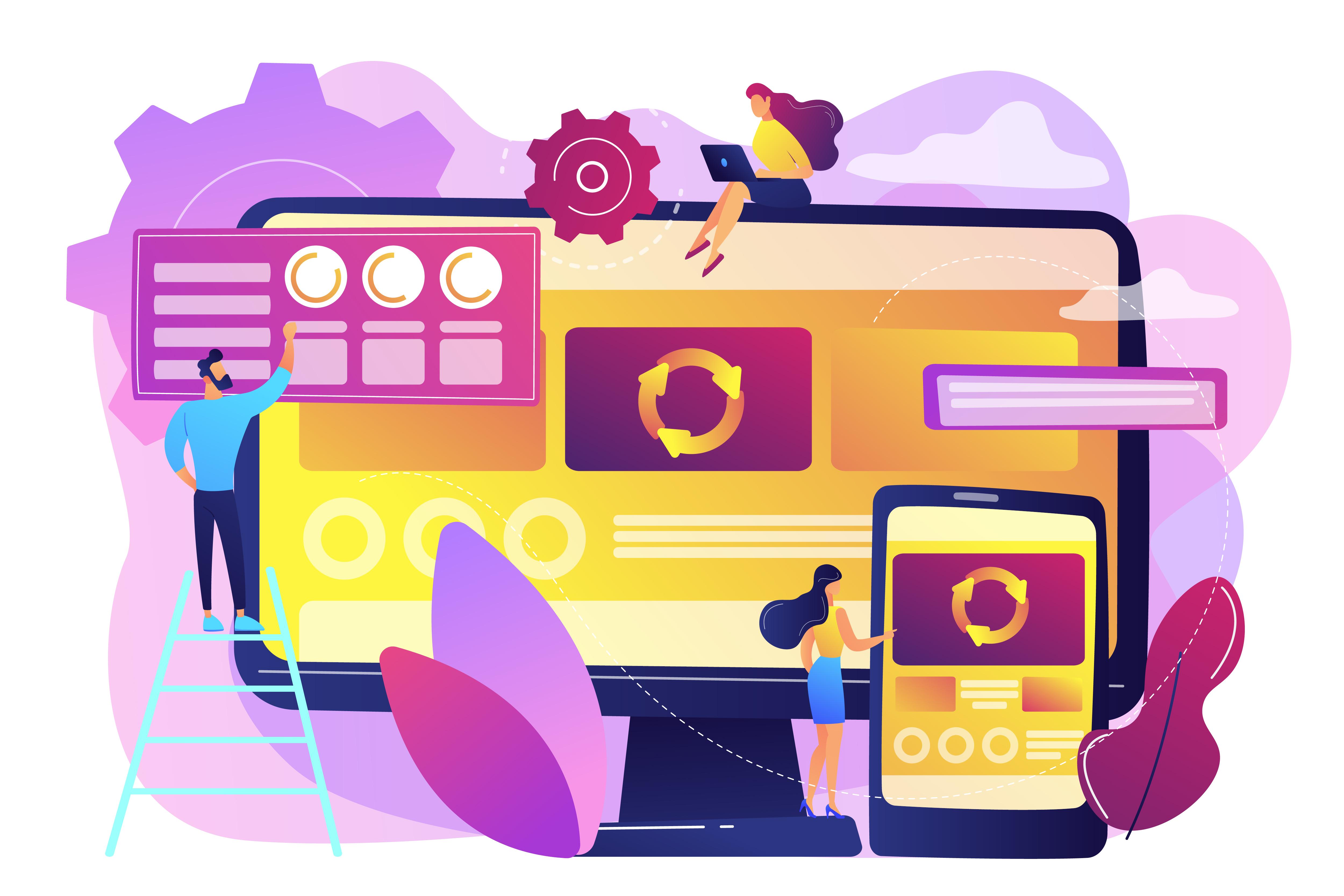Choosing the Right Nearshore Mobile App Development Partner: A Step-by-Step Guide

In today’s fast-evolving digital economy, mobile applications are the primary channel through which users interact with businesses. Whether you're launching a consumer-facing app or an internal enterprise solution, getting it right from the start is crucial. One smart move many companies are making? Partnering with nearshore mobile app development firms.
But how do you choose the right partner?
This comprehensive, step-by-step guide will walk you through everything you need to consider when selecting a nearshore app development team that aligns with your business goals, technical needs, and long-term vision.
Why Nearshore Mobile App Development?
Before diving into the selection process, let’s briefly understand why nearshore mobile app development is gaining popularity.
1. Proximity and Time Zone Alignment
Unlike offshore teams that may work in vastly different time zones, nearshore partners are typically in close geographic proximity. This allows for better communication, real-time collaboration, and reduced lag in decision-making.
2. Cultural and Language Compatibility
Working with teams from similar cultures or shared languages helps avoid miscommunications and ensures a smoother development process.
3. Cost-Effectiveness
While not as low-cost as offshoring, nearshore development often offers a balance between cost and quality. You get access to highly skilled developers without the inflated pricing of local teams.
4. Talent and Expertise
Many nearshore firms specialize in cutting-edge technologies, frameworks, and methodologies. For instance, companies that offer custom Java development or cross-platform mobile app solutions are readily available in nearshore regions.
Step 1: Define Your Mobile App Requirements
The first step to finding the right partner is understanding what you need.
Ask yourself:
-
What is the goal of the app?
-
What platforms (iOS, Android, or both) will you target?
-
What features are must-haves?
-
Do you require native, hybrid, or cross-platform development?
-
What is your budget and expected timeline?
Having detailed documentation—even a simple feature list—will help you communicate clearly with prospective partners.
Step 2: Identify Potential Nearshore Locations
Popular nearshore locations depend on your business location. For example:
-
If you're based in the U.S., Latin American countries like Mexico, Colombia, Brazil, and Argentina are excellent nearshore options.
-
If you're in Europe, Poland, Ukraine, and Romania are well-established tech hubs.
Choose regions known for their tech expertise, stable infrastructure, and supportive regulatory environments.
Step 3: Research and Shortlist Partners
Now that you know your needs and have identified potential locations, start researching companies.
Key Sources:
-
Clutch, GoodFirms, and other B2B review platforms
-
Tech blogs and case studies
-
LinkedIn and company websites
-
Referrals from peers in your network
What to Look For:
-
Proven experience in nearshore mobile app development
-
Strong portfolios with similar projects
-
Client testimonials or success stories
-
Transparent communication processes
-
Scalability and flexibility to meet your project’s growth
Don’t be afraid to reach out and ask for specific examples of similar apps they’ve built or industries they've worked in.
Step 4: Evaluate Technical Expertise
Technology choices make or break an app’s success. Assess each partner’s capabilities in mobile frameworks and programming languages.
Essential questions to ask:
-
Are they skilled in native development using Swift (iOS) and Kotlin/Java (Android)?
-
Do they work with hybrid or cross-platform frameworks like React Native or Flutter?
-
Can they offer custom Java development if your backend requires it?
Even if you don’t have a deep tech background, asking the right questions shows that you're informed and serious.
Step 5: Assess Communication and Collaboration Style
Strong communication is essential for success in any development project—especially when working across borders.
During your initial calls or meetings, evaluate:
-
English proficiency and clarity of expression
-
Responsiveness to emails and messages
-
Use of collaboration tools (Slack, Jira, Trello, Zoom)
-
Willingness to adapt to your preferred workflows
Look for a team that proactively engages, offers insights, and makes an effort to understand your business—not just the app.
Step 6: Review Project Management Methodologies
The development methodology your partner follows will affect everything from timelines to costs and quality assurance.
Common methodologies:
-
Agile/Scrum: Focuses on short, iterative cycles (sprints) and continuous feedback. Best for evolving projects.
-
Waterfall: More linear and rigid. Works well for projects with well-defined requirements.
Ask about:
-
Sprint durations and deliverables
-
Milestone-based billing
-
Bug tracking and QA practices
-
Deployment and post-launch support
Choose a partner who can provide regular updates, quick iterations, and smooth feedback loops.
Step 7: Understand Pricing Models
Cost shouldn’t be the only factor—but it’s definitely a big one.
Common pricing models:
-
Fixed Price: Ideal for well-scoped, short-term projects.
-
Time and Materials (T&M): More flexible, perfect for ongoing or evolving needs.
-
Dedicated Team: Best for long-term partnerships with full control over the team.
Ask for a detailed cost breakdown including:
-
Development hours
-
Design and UX services
-
Project management
-
Maintenance and updates
Transparent partners won’t hesitate to explain their cost structure.
Step 8: Ensure Legal, Security & IP Protection
Intellectual property (IP) protection, data security, and compliance should never be overlooked—especially when dealing with a third-party team.
Make sure your contract includes:
-
NDA (Non-Disclosure Agreement)
-
IP transfer clauses
-
Data protection compliance (GDPR, HIPAA, etc.)
-
Dispute resolution mechanisms
-
Security protocols (code repository access, encrypted communication, etc.)
It’s advisable to have your legal team or advisor review any agreements before signing.
Step 9: Ask About Post-Launch Support
App development doesn’t end with deployment. You’ll need help with updates, bug fixes, scaling, and potentially new features.
Ask potential partners:
-
What kind of post-launch support do you offer?
-
How are bugs and updates handled?
-
Do you offer monthly maintenance packages?
A reliable nearshore team should act as an extension of your in-house team—not disappear after delivery.
Step 10: Start with a Small Pilot Project
Once you’ve selected a partner, consider starting with a pilot phase or MVP (Minimum Viable Product).
Benefits include:
-
Testing their technical skills
-
Assessing communication efficiency
-
Gauging their ability to meet deadlines
-
Reducing financial risk
If all goes well, you can confidently scale the partnership for full app development and beyond.
Real-World Insight
At fx31 labs, we’ve seen firsthand how businesses benefit from nearshore collaborations that strike the right balance between quality, cost, and time-to-market. Whether clients are launching mobile-first products or require robust backend systems through custom Java development, success always starts with the right partner selection.
What we’ve learned is this: It’s not just about hiring developers—it’s about building relationships with professionals who understand your goals and work proactively toward them.
Conclusion
Choosing the right nearshore mobile app development partner is a strategic decision that can shape the future of your business. By following the step-by-step approach outlined above, you can reduce risks, save time, and ensure a successful mobile app launch.
Take the time to research, evaluate, and communicate clearly. The right partner will not only bring your idea to life but also elevate your digital presence in a way that’s scalable and sustainable.






